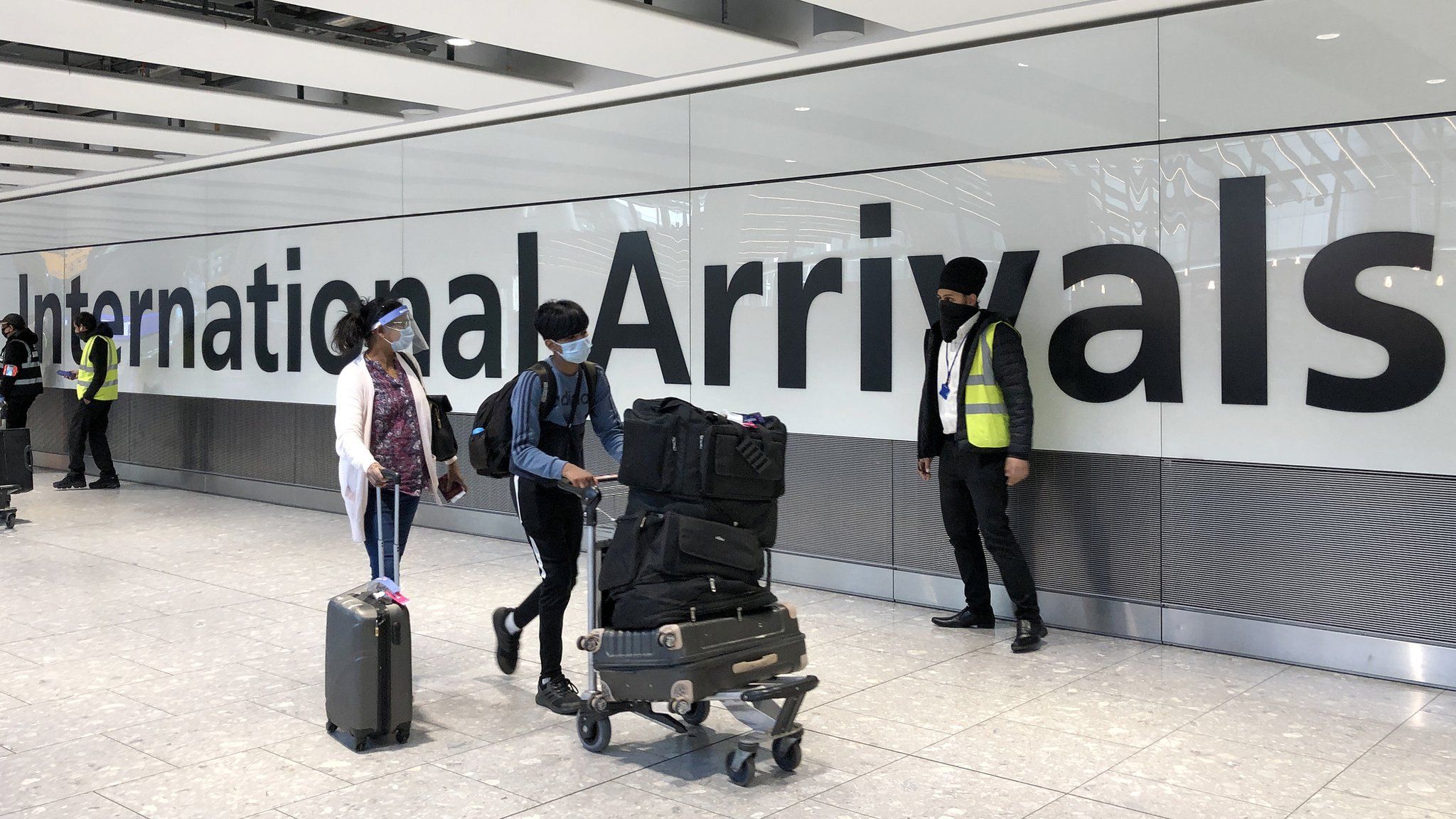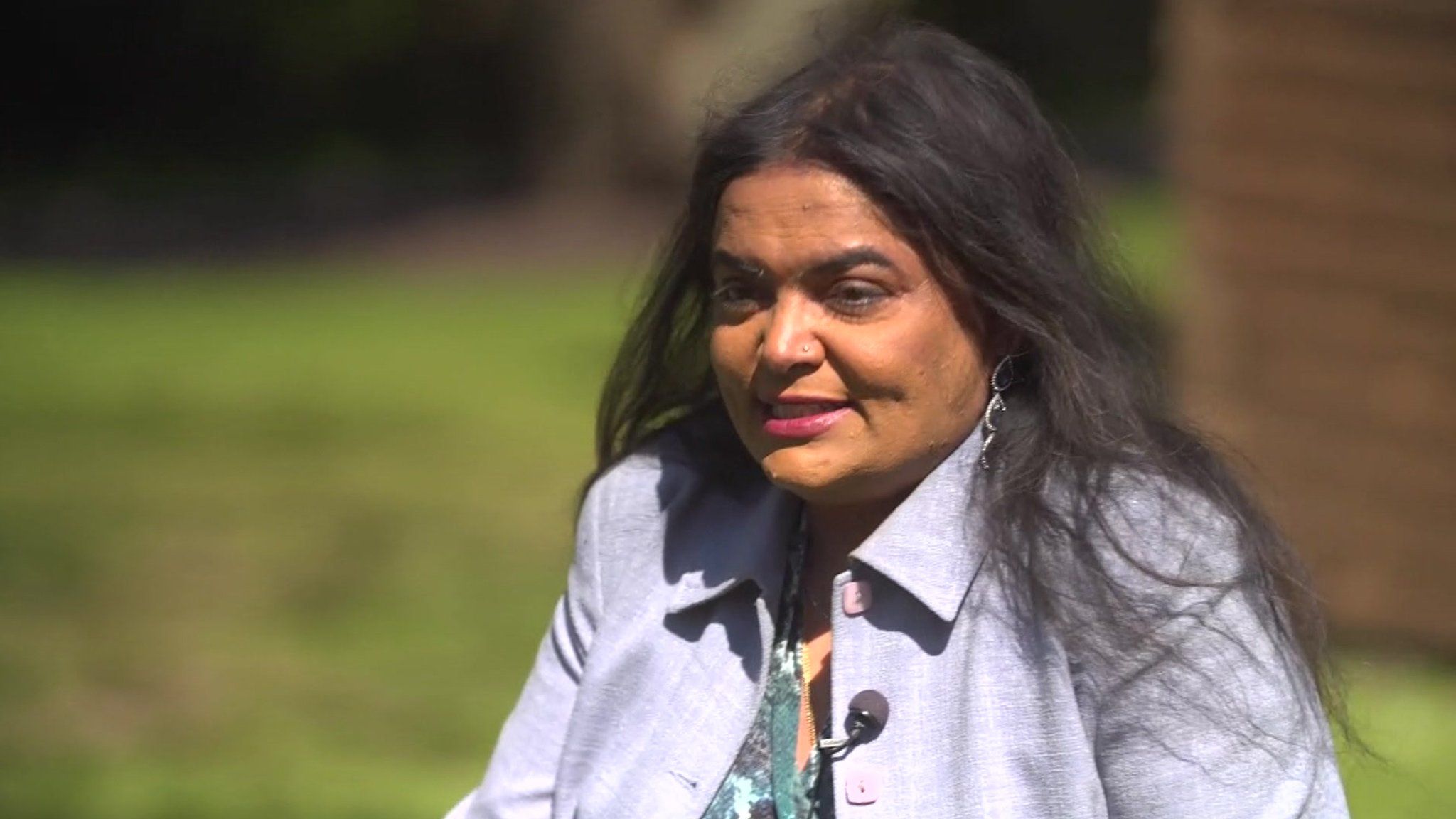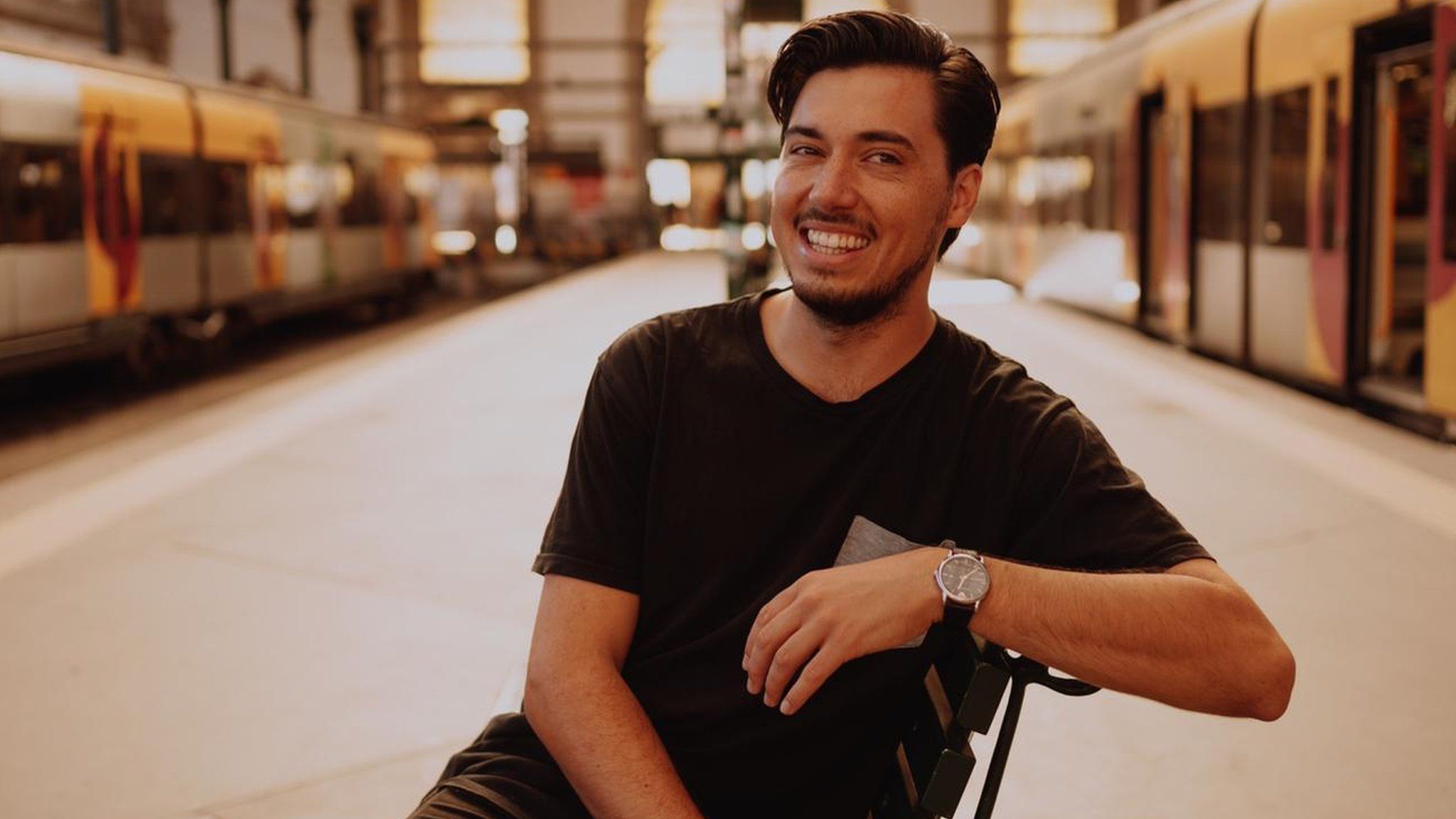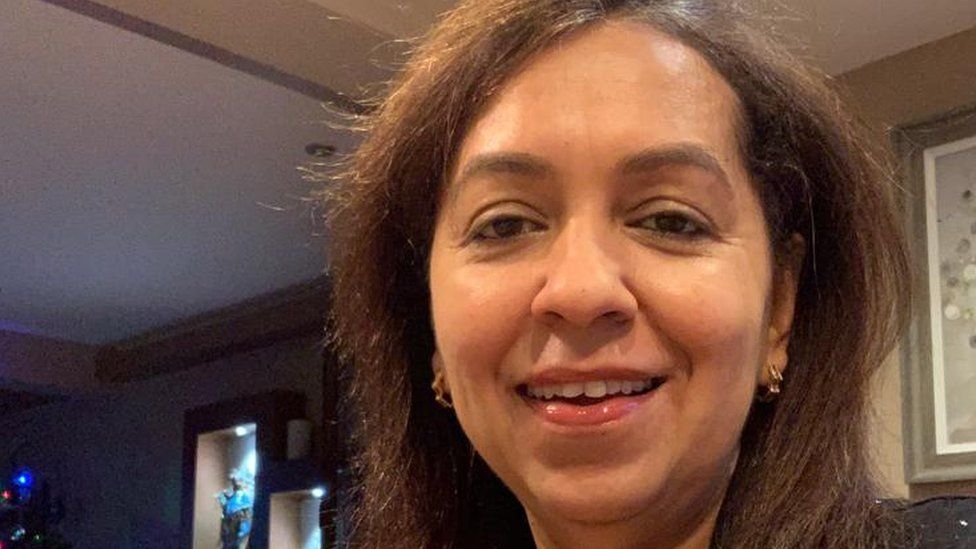
The first people to arrive in the UK from India since the country was placed on the travel "red list" have entered hotel quarantine.
British and Irish nationals and those with residency rights must isolate in approved accommodation for 10 days after rules changed overnight.
India has seen a second wave of infections, with shortages of medical oxygen leaving some patients untreated.
Some British Asians have spoken of the trauma of witnessing India's surge.
Meeta Joshi, from Guildford, Surrey, described how she has lost nine close relatives and friends in India in the past week - four due to Covid.
"One was an aunt I have known since I was born… I was in communication with her regularly through mobile calls," she said.
"Life is so fragile and there is no guarantee. Until February, everything was looking fine in India."

Ashree Singh, a physiotherapist living in London, described "a state of mental agony" as relatives and friends sent worsening updates from the country on messaging apps.
The NHS worker said she had a "feeling of worthlessness and helplessness when you're seeing your family, relatives and friends suffering and dying".
On Friday, India reported 332,730 new cases of coronavirus, setting a world record for a second day running. Deaths were numbered at 2,263 in 24 hours as crematoriums organise mass funeral pyres.

Passengers from one of the first scheduled commercial flights to land in the UK from India since the red list changed were seen being escorted to government-approved hotels at London's Heathrow Airport on Friday afternoon.
TV chef Romy Gill returned from India before the travel rules changed on Thursday and is isolating in a hotel in Bristol. She praised the UK government's handling of the rules for those returning from the country.
"I was in India last November and what has been done now is completely different," she said. "I think the [UK] government is doing what they should have done ages ago."
But some have spoken of their struggle to leave India amid restrictions on travel and widespread flight cancellations.
Mukti Mulligan, from London but currently in Goa, told BBC Asian Network's Big Debate he lost out on tickets to return to the UK because his mandatory Covid test did not return within the time limit.

He said the situation in India was "very worrying" - though Goa seemed calmer than elsewhere - and he expressed surprise at how visible Covid was among his friends in their 20s and 30s.
"Even now a number of my friends are isolating, stuck in bed, most of them are not tested," he said. "Almost certainly a vast majority have got Covid.
"We're talking about under 40s, mostly in their 20s and 30s. Pretty much everyone is affected in some way or another."
Deepa Bajaj, an IT consultant living in London, travelled back to India in early March to visit her elderly parents in Mumbai.
When the red list change was announced, she secured a seat on a return flight back to the UK - but her mandatory pre-departure Covid tests returned positive results.

"It was a bit shocking because I had no symptoms, I was being super careful, I don't even remember having gone out for the past five or six days," she told Asian Network.
The 53-year-old is now experiencing Covid symptoms including a sore throat and fever but hopes to return to the UK once her she recovers from the virus.
Health Secretary Matt Hancock said the UK stands "ready to support our friends in India with whatever we can".
"We are actively engaged with how we can support from where we are," he said.
Friday's travel rule change means direct flights from India are still permitted, but UK and Irish nationals, as well as those with residency rights, must isolate in government-approved hotels - at their own cost - for 10 days.
Travel to the UK is banned for all others who have been in red list countries in the past 10 days.
There are 40 countries on the government's red list across the Middle East, Africa, Asia and South America. Countries can be added to the list with just a few hours' notice.
There are specific rules for people arriving in each UK nation, including England, Scotland, Northern Ireland and Wales.
Public Health England (PHE) confirmed on Thursday that a further 55 cases of the virus variant first identified in India - known as B.1.617 - were found in the UK in the latest week to 14 April.
PHE experts are currently unsure whether any of the mutations mean the variant can be transmitted more easily, is more deadly or can evade the effectiveness of vaccines or natural immunity.
Meanwhile, the latest R number range for England was estimated to be 0.8 to 1.0, with a growth rate indicating the number of new infections is shrinking by between 1% and 5% every day.
The UK reported a further 2,678 coronavirus cases on Friday. Another 40 deaths within 28 days of a positive test were recorded, a slight rise on recent days.

Have you been affected by the issues in this story? Please share your story by emailing haveyoursay@bbc.co.uk.
Please include a contact number if you are willing to speak to a BBC journalist. You can also get in touch in the following ways:
- WhatsApp: +44 7756 165803
- Tweet: @BBC_HaveYourSay
- Please read our terms & conditions and privacy policy
If you are reading this page and can't see the form you will need to visit the mobile version of the BBC website to submit your question or comment or you can email us at HaveYourSay@bbc.co.uk. Please include your name, age and location with any submission.
"hotel" - Google News
April 23, 2021 at 11:17PM
https://ift.tt/2QMMiVk
Covid-19: India arrivals begin UK hotel quarantine - BBC News
"hotel" - Google News
https://ift.tt/3aTFdGH
https://ift.tt/2xwvOre
Bagikan Berita Ini














0 Response to "Covid-19: India arrivals begin UK hotel quarantine - BBC News"
Post a Comment